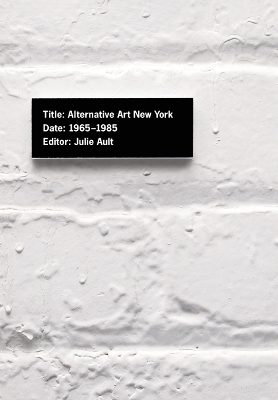Cultural Politics
1 total work
Vol 19
A multifaceted history of New York’s influential alternative art scene during a time of rapid social change.
By the mid-1960s, New York’s art establishment-its major museums and galleries-had ceased to reflect the city’s diversity and had largely ignored the decade’s social, political, and cultural ferment. In response, marginalized artists created an oppositional network of organizations, exhibit spaces, and cooperative galleries that both paralleled and challenged the status quo. This alternative art movement flourished for more than two decades, repositioning New York at the center of international contemporary art. Alternative Art New York brings together a diverse group of artists and critics to explore the origins and evolution of this diffuse and vibrant cultural scene from a variety of perspectives: political, philosophical, organizational, economic, and aesthetic.
Locating the movement within both the art world and its larger social and political context, these authors decipher the shifting configurations of cultural power in this period and the complex relationship between the mainstream and the marginal. With a unique, annotated chronology of the alternative art scene from 1965 to 1985, and illustrated with 150 images of key works, installations, and exhibits; reproductions of posters, communiqués, and other ephemera; and photographs of protests and meetings, this volume is an important work of contemporary art history and a valuable sourcebook that suggests the basis for the return of an artist-driven cultural economy. Contributors: Martin Beck; Juli Carson, UCLA; Jim Cornwell; David Deitcher, Cooper Union; Arlene Goldbard; Miwon Kwon, UCLA; Lucy R. Lippard; Alan Moore; Brian Wallis, International Center of Photography. Published in collaboration with The Drawing Center, New York.